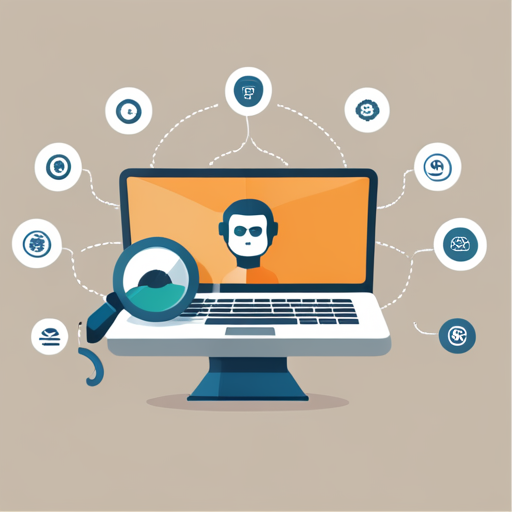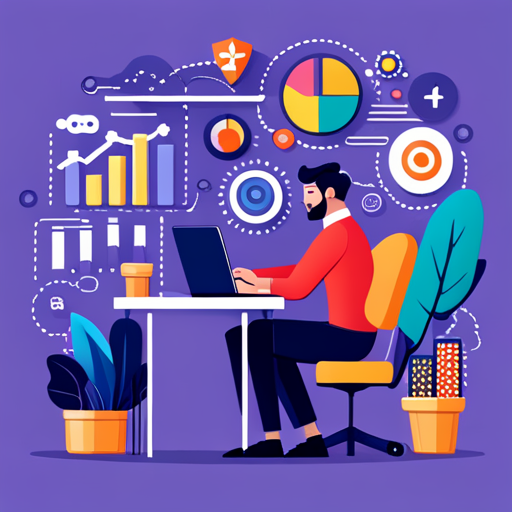In the age of smartphones and constant connectivity, digital marketing has become an essential part of every business strategy. However, for those who don’t consider themselves tech-savvy, the world of digital marketing, with its jargon and technical concepts, can seem daunting. This guide will help you navigate through digital marketing platforms, strategies, and the role of artificial intelligence, even if you’re not a tech expert.
What is Digital Marketing?
Digital marketing refers to any marketing effort that uses digital channels to reach potential customers. This can include everything from email newsletters and social media ads to search engine optimization (SEO) and content marketing.
Why Digital Marketing?
Digital marketing offers several advantages over traditional marketing methods. It allows businesses to reach a global audience, target specific demographics, interact with customers in real-time, and track the effectiveness of their campaigns. Plus, it’s often more cost-effective than traditional marketing methods.
Key Platforms in Digital Marketing
- Website: Your website is your digital storefront. It’s where you showcase your products or services, tell your brand story, and convert visitors into customers.
- Search Engines: Search engines like Google are where people go to find information. SEO and pay-per-click (PPC) advertising are two strategies to improve your visibility on search engines.
- Social Media: Platforms like Facebook, Instagram, Twitter, and LinkedIn allow you to reach and engage with your audience directly. They’re excellent platforms for sharing content, promoting offers, and even providing customer service.
- Email: Despite the rise of social media, email remains one of the most effective digital marketing channels. It’s perfect for sending personalized messages, offers, and content directly to your customers.
Essential Digital Marketing Strategies
- SEO: SEO involves optimizing your website and content to rank higher in search engine results, helping you attract more organic (unpaid) traffic.
- Content Marketing: This involves creating and sharing valuable content (like blog posts, videos, infographics, etc.) to attract and engage your audience.
- Social Media Marketing: This strategy involves using social media platforms to reach your audience, promote your content, and engage with your customers.
- Email Marketing: With email marketing, you can send personalized messages directly to your customers’ inboxes, promoting your products, services, or content.
- PPC Advertising: PPC involves running ads on digital platforms (like Google or Facebook) and paying each time someone clicks on your ad.
The Role of Artificial Intelligence
Artificial intelligence (AI) is transforming the world of digital marketing. Here’s how:
- Personalization: AI can analyze a user’s behavior to deliver personalized content, offers, and recommendations. This can significantly improve user engagement and conversion rates.
- Chatbots: AI-powered chatbots can provide instant customer service, answer common questions, and even guide users through a sales funnel.
- Predictive Analysis: AI can analyze large amounts of data to predict future customer behavior, helping businesses make data-driven decisions.
- Automated Marketing: AI can automate repetitive tasks like sending emails or posting on social media, saving businesses time and resources.
Getting Started with Digital Marketing
Here are some steps to kickstart your digital marketing journey:
- Define Your Goals: What do you want to achieve with your digital marketing efforts? More website traffic? More sales? Better customer engagement?
- Know Your Audience: Understand who your customers are, what they want, and where they spend their time online.
- Choose Your Platforms: Based on your audience, choose the most effective digital marketing platforms for your business.
- Create a Plan: Develop a plan that outlines your strategies, tactics, and key performance indicators (KPIs).
- Execute and Adjust: Implement your plan, monitor your results, and adjust your strategies as needed.
Digital marketing might seem overwhelming at first, especially for non-techy people. But with a basic understanding of the platforms, strategies, and technologies involved, anyone can harness the power of digital marketing. Remember, it’s all about connecting with your audience and providing value. Good luck!






